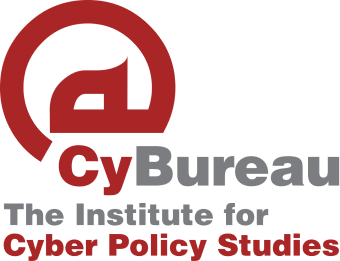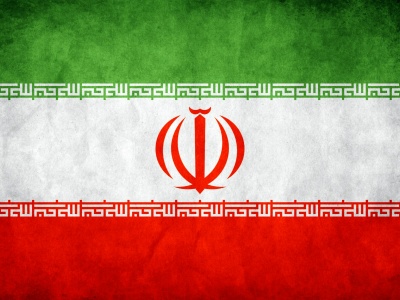Internet restrictions during election campaigns in Iran
“This is my only link to the western world, one click and I’m in LA. It also enables me to communicate more freely with other Iranians my age,” said a young Iranian woman in 2003, explaining how important internet cafés are for youths in her country. Considering the strict constraints on personal and communication freedoms in Iran, the internet has become a key medium, whereas the press, like all other media, is very closely monitored by governmental authorities. This observance grows even stricter during elections, such as the presidential race to be held this June.
Internet use started spreading in Iran as early as 1987. From the outset, Iran possessed great potential in this area. Today we can safely say that, in terms of web-user count, this potential has been realized. Iran is a regional internet superpower, wherein the rate of internet proliferation between 2000 and 2008 was no less than 9,100% – from 250,000 to 23 million users in eight years. This rate is highest among neighboring nations, higher by far than the regional average of 2,606%. The rate of internet penetration in Iran is also high, 34.9% of the population, third in the region after Turkey and the UAE. This is because Iran is rich in human capital and because the internet is practically the only mean of communication with foreign entities or inside the country.
The Iranian regime, however, takes various measures to prevent free access to the internet and to fetter users. This policy has rendered Iran one of the world’s 13 “internet enemies”. Such measures have been enforced more sternly or more leniently, in concert with various elections held there: local councils (February 2003), parliament (February 2004), presidency (June 2005), and the elections for local councils and the Assembly of Experts held on December 15th 2006. The presidential election this June 12th is no exception.
Legislation
Shortly after the 2003 election, absent an applicable law, a committee was formed to address internet offences. About a year later, a few months after the parliamentary elections, a spokesperson for the Ministry of Justice announced the drafting of a penal law against internet crimes, whereby the publication of information which is harmful to national security is cause for incarceration, as is propagating incorrect information regarding government officials. Furthermore, ISPs were no longer to be the only website-filtering authority. As internet users’ arrests were becoming more frequent in late 2004, between the parliamentary and the presidential elections, it was argued that the law should also address other offences, hacking in particular, and that a special law should be enacted to regulate web logs.
On November 27th 2006 (just before the elections in December of that year for local councils), the Iranian government promulgated regulations requiring website operators to register their sites with the governmental bureaus. This underlined the minister of culture and Islamic guidance’s edict that any local website not registered at his ministry be shut down.
Regulation
Despite the official proclamation that the object of censorship is to shield the public from moral depravity, it was soon applied to political issues, and today the deliberate Iranian policy is to restrict internet usage. Pornographic and reformist websites have been blocked, as well as sites about news and religion. A few years ago a campaign was held against websites dedicated to women’s-rights issues. In January 2003, preceding the local-council elections in February, a committee of representatives from the Ministry of Culture, the Ministry of Intelligence, the radio, and television services was assembled to compile a list of banned websites. In July 2003 a list containing dozens of political websites, circumventor sites and blogs, was published and submitted before the Ministry of Communications. The list was handed out to the ISPs, so that they might block the sites in question.
Reformist Websites
The conflict between reformists and conservatives is manifest in the world of the internet too. Each side endorses its own websites. In February 2003 a reformist site was blocked and several other such sites were closed nearing the parliamentary elections in 2004. Before the December 2006 elections, some independent websites criticizing the president and the treatment of women in the country were blocked, as was a news website used by reform activists.
Foreign Websites
Before the local-council elections of December 2006, it was reported that several western websites had been blocked, including Amazon, YouTube, Wikipedia, the IMDB, and the New York Times. Whenever one tried to access any of these sites, a message popped up saying that the requested page was banned. An Iranian blogger, however, suggested there was no intention to block English sites per se, seeing as some of them were unblocked after a few days and as some English versions of websites were available while the Farsi versions thereof were blocked. Moreover, according to this blogger, in absence of a central filtering system, the internet providers have to see to it themselves. This slows browsing, sometimes so much as to deny access to sites.
Infrastructure
In late October 2006, anticipating the local-council elections, internet speed was limited to 128 Kbps. This was done to hinder the downloading of western audio and video files as well as to disrupt reformist factors’ web posts.
Arrests
Generally speaking, arrestees are either reformist-website operators, or bloggers. The ones taken into custody are usually writers and technical operators, while no action is taken against the political leaders they support. These arrests normally peak at election times.
The first set of internet-user arrests began about a month before the local-council elections of February 2003, with the detention of a blogger and a news-site editor who dared speak ill of the regime. Some users were also arrested in the weeks following this election. The second batch started in May 2004 (parliamentary elections were held in February that year) when the blogger Mojtaba Lotfi was taken in. Lotfi had been a writer in a reformist newspaper which was shut down by the government in 2000. This increase lasted until late 2005, a few months after the presidential election in June.
Although some other arrests were made in June and August 2004, most were during September and November that year – about eight months after the parliamentary elections and before the presidential elections. Except for the arrest of two bloggers in January and February 2005, no other arrests are known. Most arrestees were tortured in the gaol, but not held long. In January 2007 three female internet journalists were detained, though not overnight.
However, in the past few months we have seen another intensification of internet restriction. This started about a year before the coming presidential elections. Since November 1st 2008, four bloggers and one internet journalist were incarcerated (among them are the famous blogger Hossein Derakhshan, and Mojtaba Lotfi, who had been arrested many times before and was now sentenced four years in jail). The last incident was the imprisonment of a local blogger on the 7th of February this year. He was sentenced to four years in prison on account of “an affront to the nation and its leaders.” On March 18th, an Iranian blogger died in jail, which marked, thus far, the pinnacle of this surge of events. He was imprisoned on December 15th 2008 for two years on account of “an affront to the Islamic republic leaders.” On the internet itself, some local sites that reproached the president and some foreign sites were closed down.
In order to fasten its hold of power and to diminish as much as possible the opposition’s freedom to express views, respond, protest, and act, the Iranian regime impedes the voicing of opinions online; and during election times – with greater zeal. Such times are perceived by the government as test cases for the viability of the present form of governance. Hence, it employs any mean available to monitor and manage such threats, keeping them at bay, on the internet as well.
Upon taking office, Iran’s current president promised to ameliorate the economy. The economic strife and the fact that this is the Iranians’ main concern at the moment, however, go to show he has not delivered. So, based on past occurrences near election times and especially in light of the present regime’s failure to alleviate general and individual economic hardships, an increase in number and frequency of events related to control and restriction of internet usage is to be expected in the coming few months. We should expect to witness, again, the fettering of reformists’ activities online, the elimination of websites and blogs appertaining thereto, the detention of users and bloggers, and the blocking of national and international websites. The goal would be to stifle contention from within and to ebb any attempt to displace the present regime, which in the eyes of many voters has not accomplished its paramount undertaking.
This post is also available in:
עברית

